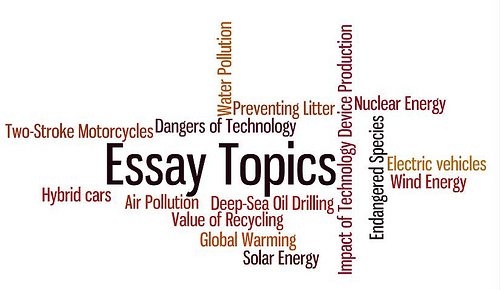Skip to content
21.Traditional vs. Modern
Losing Traditional Skills
- Because of industrialisation and global trade, many traditions have disappeared.
- Global advertising encourages everyone to buy the same products.
- Most products are now made in factories.
- Machinery has replaced skilled human labour.
- Factory work is boring and leaves people feeling unfulfilled.
- Goods are produced very quickly and in large numbers.
- Products are cheaper, which means that more people can buy them.
Examples
- Clothes are mass produced in standard sizes.
- People wear similar clothes, rather than traditional costumes.
- Jeans and T-shirts are now worn throughout the world.
- Historic buildings took skilled craftsmen years to build.
- Modern concrete, steel and glass buildings are built in only weeks or months.
- There are fewer people who can create hand-made goods.
Traditional Customs
- Traditional customs are still important during weddings and religious festivals.
- People wear traditional costumes and eat special foods.
- It is important to maintain our different cultural identities.
- We should celebrate festivals, teach traditional skills and protect historic places.
22.Transport
Traffic Problems
- Traffic congestion is caused by commuters travelling to work.
- Most people live in the suburbs outside city centres.
- Commuters tend to travel at the same time of day.
- They tend to travel alone.
- Cars and road space are not used efficiently.
- This causes traffic jams during the rush hour.
Traffic Solutions
- In order to reduce traffic we should change our working habits.
- The Internet can now be used to connect people.
- More people could work from home.
- Meetings can be held as video conferences.
- Workers could be given flexible timetables.
- Another solution would be to tax drivers.
- Workers should share their cars and travel together.
- In London, for example, there is a congestion charge.
- This helps to raise money for better public transport.
- Public transport needs to be reliable and efficient.
Positives of Public Transport
- We need to reduce our dependence on cars.
- Parking a car can be extremely difficult in big cities.
- Well-designed transport systems are comfortable and convenient.
- Modern public transport can be fast and cheap.
- Public transport can help to reduce pollution in cities.
- Investment in buses and trains will ease traffic congestion.
- Buses can be given special lanes to avoid traffic.
Negatives of Public Transport
- Public transport is often slow and unreliable.
- Metro systems and trains are often dirty and crowded.
- People feel like “sardines in a can”.
- Cars are much more comfortable.
Road Safety
- Driving while tired or drunk is extremely dangerous.
- Mobile phones can be a dangerous distraction for drivers.
- They draw the driver’s attention away from the road.
- The use of phones while driving has been banned in many countries.
- Punishments are becoming stricter.
- Television campaigns are used to remind people to drive safely.
- Speed cameras have become more common.
- Speed bumps are another form of traffic calming.
- Many streets are designed with the aim of slowing traffic down.
23. Water
Importance of Clean Water
- Water is an essential natural resource.
- Humans need access to clean, safe drinking water in order to live.
- Poor water quality is a major cause of disease and death in some countries.
- Water usually needs to be treated before we can drink it.
- Developing countries often lack the means to treat and supply water to citizens.
- Developed countries tend to have much better sanitation.
- Citizens have access to clean tap water.
- Drinking water is not contaminated by sewage or waste water.
- The supply of clean water would improve public health in many developing countries.
Water Supply
- Urban life would be impossible without water supply systems.
- These systems are massive engineering projects.
- Many professionals are involved in their planning, construction and maintenance.
- The supply and distribution of water are major concerns.
- Water is becoming scarce in some countries.
- Areas that suffer droughts often need to import water.
- As populations grow, there is more pressure on water supplies.
- This could lead to a water crisis.
Water and Politics
- The supply of water is also an important political issue.
- Huge amounts of water are needed for agriculture and industry.
- The irrigation of crops accounts for a large proportion of water use.
- A water crisis could lead to political conflicts or even wars.
Argument: water should be free
- Some people believe that water should be free for everyone.
- Governments should supply water to all homes at no cost.
- Private companies should not be allowed to profit from this natural resource.
- Money from taxes can be used to pay for water supply systems.
Argument: water should not be free
- If water is free, people take it for granted.
- They do not think about how much water they waste.
- They leave taps running while washing or brushing their teeth.
- If we have to pay for water, we will use it more responsibly.
- Water supply systems are extremely expensive.
- Investment is needed to maintain and improve them.
- Private companies may provide a better service than governments.
- If they provide an efficient service, they will make more money.
- They will repair leaks to avoid losing money.
Bottled Water: Opinions
- Some people carry bottles of water wherever they go.
- For example, they take bottles of water to work or to the gym.
- They believe that bottled water is healthier than tap water.
- They also argue that it tastes better.
- However, other people believe that we should consume less bottled water.
- Plastic water bottles add to litter and waste problems.
- Companies should not be able to make a profit from water.
- It is unethical to make money by selling packaged water.
- There is no difference in quality between bottled and tap water.
24. Work
The benefits of staying in the same job for life:
- Employees have a stable career with one employer.
- They have a good pension and health insurance.
- Their salaries gradually increase.
- They may be promoted within the organisation.
- They demonstrate loyalty.
- Experienced staff can be trusted with more responsibility.
- They become part of a team.
- There is a clearly defined path for development.
The benefits of not staying in the same job:
- People often change jobs in order to further their career.
- Another company may offer a promotion or a higher salary.
- People who change jobs can gain experience.
- They can learn different skills.
- Changing jobs is interesting and challenging.
- People can retrain in a different occupation.
- In a fast-changing world workers need to be flexible.
- People need to develop a range of experience and skills.
Self-employment
- Nowadays, it is easy to set up a company.
- The Internet provides a global marketplace.
- Self-employment offers greater freedom than working for a company.
- However, there are risks to starting a new business.
- Self-employed people may face financial difficulties.
- Many businesses fail to make a profit.
- There is less stability in self-employment.
- There are no benefits like pensions, sick pay and holiday pay.
- Self-employment involves hard work, long hours and total responsibility.
Unemployment
- Unemployment is a big problem for individuals, communities and society.
- Some people are unable to find a job.
- They may not have the sufficient level of education or qualifications.
- They may find themselves homeless.
- Unemployment causes frustration and stress.
- Jobless people may become involved in crime as a means to get money.
- The unemployed need careers advice.
- Governments need to provide vocational courses and retraining.
Unemployment Benefits: Positives
- Some governments pay unemployment benefits in order to help jobless people.
- Unemployed people need financial support until they find a new job.
- By claiming benefits they can continue to pay for their homes.
- The benefits system helps to reduce poverty, homelessness and crime.
Unemployment Benefits: Negatives
- Some people claim benefits rather than working.
- They become dependent on the government.
- They are not motivated to find a job.
- The benefits system is a burden on taxpayers.
- All citizens should work to earn a living and support themselves.
- Receiving benefits affects people’s self esteem.
Work / Life Balance
- It is important to achieve a balance between work time and leisure or family time.
- Too much work can result in stress and poor health.
- “Workaholics” may neglect their families and friends.
- People need to take regular holidays.
- Companies should not expect employees to work overtime.
- Nowadays, many people work part-time or have flexible working hours.
- Technology allows people to work from home.
- Many companies provide childcare facilities.
- A good work/life balance can raise job satisfaction.
- Happy, healthy workers are more productive.
Technology and Work
- Internet, fax and mobile phone technologies have revolutionised working life.
- Workers can communicate via e-mail, online networks and video conferencing.
- Technology can connect workers in different countries.
- It gives people more freedom.
- It can also save time and money.
- Some people believe that offices could disappear in the future.
- Virtual online offices may replace them.
Child Labour
- In some countries, children are exploited.
- They do repetitive jobs for very low pay.
- Children are often used in agriculture and factory work.
- The employment of children is prohibited in other countries.
- Many people think that children should be free to enjoy their childhood.
- Governments should make education a priority.
- They should build new schools.
- They should supply the resources to educate children.
- Children need to be given the knowledge and skills for adult life.



